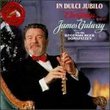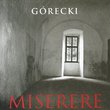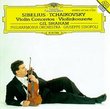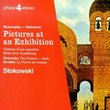| All Artists: Choir of Winchester Cathedral Title: Jerusalem: British Choral Classics [Australia] Members Wishing: 0 Total Copies: 0 Label: Eloquence Original Release Date: 1/1/2005 Re-Release Date: 3/31/2005 Album Type: Import Genre: Classical Style: Opera & Classical Vocal Number of Discs: 1 SwapaCD Credits: 1 UPC: 028947624431 |
Search - Choir of Winchester Cathedral :: Jerusalem: British Choral Classics [Australia]
![Jerusalem: British Choral Classics [Australia]](https://nationalbookswap.com/cd//l/50/0350/6150350.jpg) | Choir of Winchester Cathedral Jerusalem: British Choral Classics [Australia] Genre: Classical
Australian pressing features a total of 12 tracks. Decca. 2005. |
Larger Image |
CD DetailsSynopsis
Album Description Australian pressing features a total of 12 tracks. Decca. 2005. Similarly Requested CDs
|
CD ReviewsSupplementary thoughts to those of Mr Peabody Bryan Leech | Melbourne, VIC, Australia | 02/03/2009 (4 out of 5 stars) "Mr Peabody gives an excellent set of annotations on every item on this disc and I can find no fault in his descriptions/backgrounds etc on the music. But he is writing from a purist's viewpoint, which normally would not be a criticism. He overlooks another approach to these works which is not uncommon in England. England has some of the best choirs in the world, and they commonly record this type of work with due musical respect to the composer's intentions. But these works are also sung at other times to express inspirational enthusiasm, rather than seek a purist's interpretation of the music. If I may draw an imperfect parallel, they are used to give vent to emotions in a more classical manner, generally equivalent to much of the music in a lighter genre, that emerges from America's "Bible Belt", music sung for joy, not for the ultimate of interpretive integrity. To me, this release has been prepared concentrating on interpretations that express joy and inspiration, rather than purist readings of the music. And I think the producer has achieved this aim extremely well. With the works chosen, this is going to result in enthusiastic singing and orchestral playing (while there is a basis for the comment, I do think Mr Peabody takes the 'loud' criticism a shade too far - I was able to understand the singers, for example). I must admit there are sections where enthusiasm overtakes diction, making that understanding a little difficult, but venue acoustics play a part here too. If you look at the titles and want perfect interpretations according to the composer's intentions, then go no further than Mr. Peabody's comments. But if you are seeking uplifting and inspiring approaches to this music,despite some minor flaws, I think you will find little better to satisfy these requirements. (Although Amazon has an import from Australia, these are British recordings on the Decca Eloquence label)." A voice teacher and early music fan George Peabody | Planet Earth | 09/22/2008 (3 out of 5 stars) "OVERWHELMING MUSIC OVERWHELMINGLY OVERDONE!
English cathedral and occasional music of the last hundred years or so is generally performed with choir and organ.But more than might be guessed, was,in fact, scored by the composers for orchestra. The particular pleasure of this disc is the presence of the orchestra. Charles Stanford(1852-1924) composed five settings of the daily church services which energized cathedral music at the time and remain in the repertory. This 'B flat service' is the earliest composed in 1879. He based the opening theme of the 'Te Deum' on a Gregorian intonation, then used it as a structural motif. The opening of the 'Magnificat', once heard, is never forgotten. Byrd called this type of composing 'music being framed to the life of the words'. Hubert Parry(1848-1918) composed little cathedral music, but his processional anthem 'I Was Glad' for the sovereign's coronation in 1902 has been sung at all three since. The cantata 'Blest pair of Sirens' was dedicated to Stanford and the Bach Choir. The opening pages of 'Sirens' have been rated the most thrilling of all English music. From his oratorio 'Judith' we hear the ballad 'Long since in Egypt's Plenteous land', the song that is sung by the Queen to her children. Parry's most well known song 'Jerusalem' was first performed at a Vote for Women's concert in 1916, and in 1922 Elgar orchestrated it. Edward Elgar (1857-1934) composed for a coronation: 'O Hearken Thou' which is a deeply devotional, while is other two anthems on this disc 'Great is the Lord' and 'Give unto the Lord' are, in contrast, vigourous and splendid. Edward Bairstow(1874-1946) exerted a wide influence as a choral conductor and teacher. An authority on Anglican service music eh employed a hymn-tune anthem for his own anthem 'Blessed City, heavenly Salem. Patrick Hadley(1899-1973) was a composer of modest but distinctive output. The marriage anthem, from 1938 brings raptuorous intensity to the familiar 'Song of Solomon' words in a brief flowering moment. IF THIS MUSIC IS SO GREAT, WHY DIDN'T I GIVE IT FIVE STARS??? Here are the reasons: the sound is so loud on the part of all the performing groups (Choir of Winchester Cathedral, Waynflete singers, Bournemouth Symphony Orchestra) that the distortion of tone quality is overwhelming. This, of course, affects the diction. Well, actually, the understanding of the words is non-existent. If one follows the liners you get the picture, but I don't want to sit and read while I'm enjoying the music. Moreover, there were two dynamics: very loud and very very loud. I looked at the pictures included in the booklet showing the performance and I don't know what David Hill was thinking when he scheduled this 'mob-scene'. I'm just a bit angry because I truly love Anglican music, and this recording just doesn't 'cut the mustard'." |

 Track Listings (12) - Disc #1
Track Listings (12) - Disc #1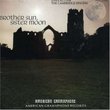

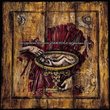


![Across The Universe [Deluxe Edition]](https://nationalbookswap.com/cd//m/51/1251/1241251.jpg)
